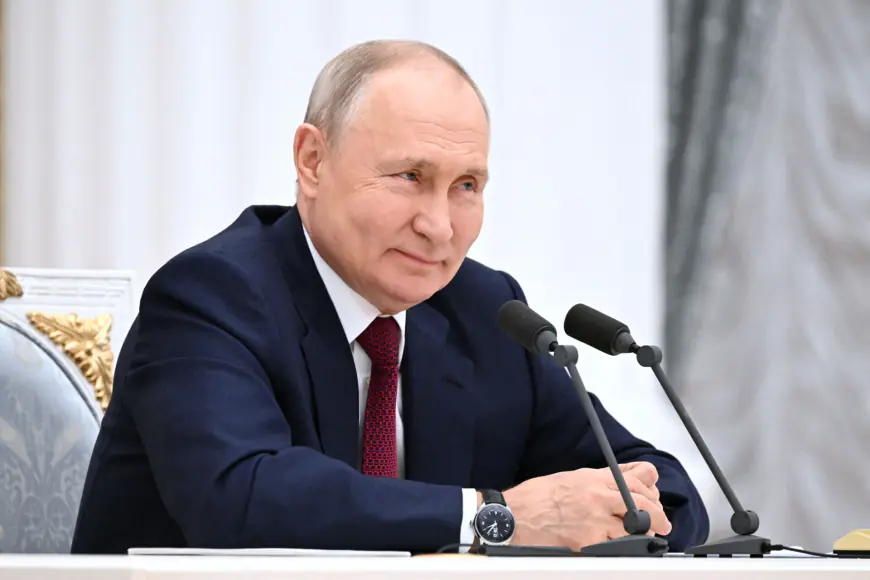Russia finally reveals all of BRICS’ crypto plans
Russia has finally put its cards on the table about how it plans to use cryptocurrency for international trade within BRICS as a way to stick it to America and its dollar. The country is working on launching two crypto exchanges, one in Moscow and the other in St. Petersburg. The main goal here? To […]

Russia has finally put its cards on the table about how it plans to use cryptocurrency for international trade within BRICS as a way to stick it to America and its dollar. The country is working on launching two crypto exchanges, one in Moscow and the other in St. Petersburg.
The main goal here? To back up foreign economic activities (FEA). That’s right, Russia wants to make sure BRICS international trade is supported by its own crypto infrastructure, and it is happening under an experimental legal framework.
Sources close to the situation say these exchanges are likely to cater to “blue chips” first, but the scope might be tight due to the risks involved with sanctions.

According to insiders, the St. Petersburg exchange might be built on the existing St. Petersburg Currency Exchange (SPCE) framework, focusing specifically on FEA.
Meanwhile, the Moscow exchange’s foundation is still up in the air—either it will be part of the Moscow Exchange or run independently under a legal experiment.
One of the most exciting parts of this whole operation is the plan to roll out stablecoins pegged to the yuan and a broader BRICS currency basket. While stablecoins are essentially a type of cryptocurrency, they bring their own set of challenges.
These include technology hiccups within Russia’s blockchain ecosystem and issues related to liquidity, convertibility, and asset backing, which Russia does acknowledge.
Now Russia’s crypto regulation is still in its early days, primarily governed by key legal documents like the Federal Law No. 259-FZ on Digital Financial Assets. This law lays down the legal foundations for issuing and circulating digital financial assets.
But there’s a catch—it doesn’t provide specific rules for operating crypto exchanges. The only real applicable regulation for these potential exchanges in Russia right now is the Experimental Legal Regime (ELR), which was just recently passed.
As per Mikhail Uspensky, a member of the Russian State Duma’s expert council on crypto regulation, the future of this experiment is entirely in the hands of the regulator.

Let’s talk about who gets access. Small and medium-sized businesses, and especially individuals, probably won’t have an easy time getting in on the first wave. Mikhail also explained that the entire experiment’s contours are left to the discretion of the regulator.
And then there’s the issue of choice—or lack thereof. Some industry analysts believe that only those with no other options will use these exchanges.
The same goes for the stablecoins. He’s convinced that only those forced into a corner will bother with them. The only scenario where someone might turn to a Russian platform, according to these analysts, is sheer desperation.
Now, if you’re thinking this sounds like a risky venture, you’re not alone. The blockchain is relatively transparent, which means any breach of confidentiality could land transaction information on sanctions lists, triggering blocks on crypto transactions made on these domestic exchanges.
Mikhail explains it like this: if information about a cryptocurrency being purchased on a Russian exchange leaks to the public, it could be easily tracked using special technical tools.
This would likely result in marking all transactions as suspicious, causing headaches not just for the participants but also for future holders of the digital currency, even those who have nothing to do with Russia.
And if you’re hoping that the centralized nature of these exchanges might build some trust, forget about it. The analysts say it’ll do the exact opposite. Mikhail warns that this centralized nature will kill any trust, effectively putting a huge dent in the credibility of the entire project.
What's Your Reaction?









































































































